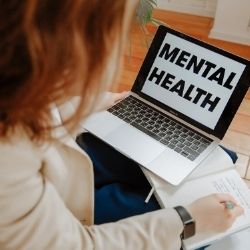Mental health is one of the most overlooked aspects of personal health, especially in Malaysia. The Ministry of Health estimates that almost 1 in 3 Malaysians may be facing mental health issues. With such a common occurrence, somehow people do not really talk about it much at all.
How to know if you have anxiety
Symptoms
Stress can cause many types of physical and emotional symptoms. Some of the common symptoms include headaches, frequent body aches and pains, trouble sleeping or sleeping too much, changes in weight, difficulty concentrating and forgetfulness.
Anxiety symptoms can vary between individuals, but would generally include having an increased heart rate, trembling, rapid breathing or also known as hyperventilation, feeling nervous, restless, or tense, and experiencing some gastrointestinal (GI) problems such as constipation or stomach cramps.
How to know if you have depression
Depression symptoms include having feelings of helplessness or hopelessness, losing interest or pleasure in daily activities, experiencing appetite or sleep changes (e.g., eating too much/too little, sleeping too much/too little), feeling tired most of the time, feeling more irritable than usual, and experiencing problems in concentration. Some individuals may also experience suicidal thoughts or suicidal ideation as a symptom.
Causes
The cause of anxiety or depression can be different for each individual. Generally, it can be split into 3 main factors, which consist of biological, psychological, and social reasons. Biological factors take into account medical conditions, genetics, and heredity from family members. Psychological factors consist of self-esteem, personality, as well as values and beliefs. Finally, eventful childhood experiences, trauma, death of a loved one are some of the examples of social factors.
It is also important to note that certain life events or certain transitional periods in our lives can all cause stress, unattended or chronic stress may then lead to anxiety and depression. Having said that, what triggers a stress response in one individual may not be the same that triggers a stress response in another individual.
What should you do?
For many people, getting themselves diagnosed is the first step towards coping and recovery. You can speak with mental health professionals to get a better understanding of your condition while exploring more effective strategies in managing your concerns. If you feel uncomfortable, there are even online tests for depression and anxiety. If you have any questions about your mental health, reach out to us today!























